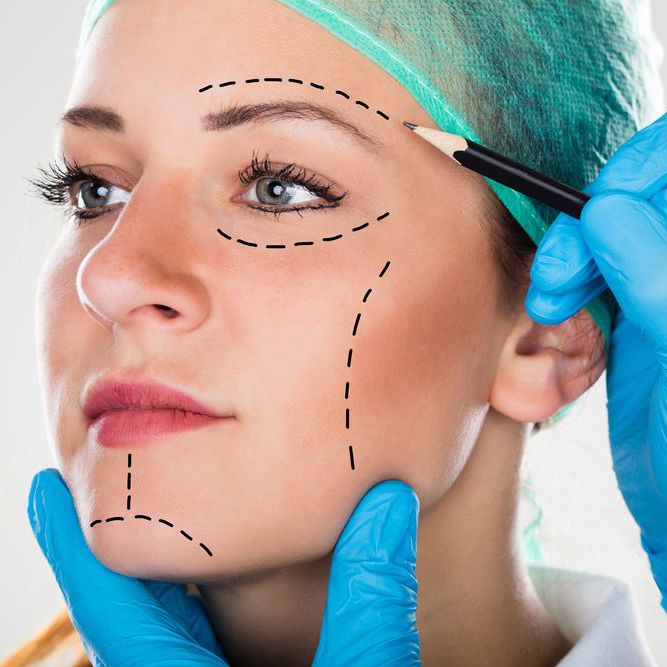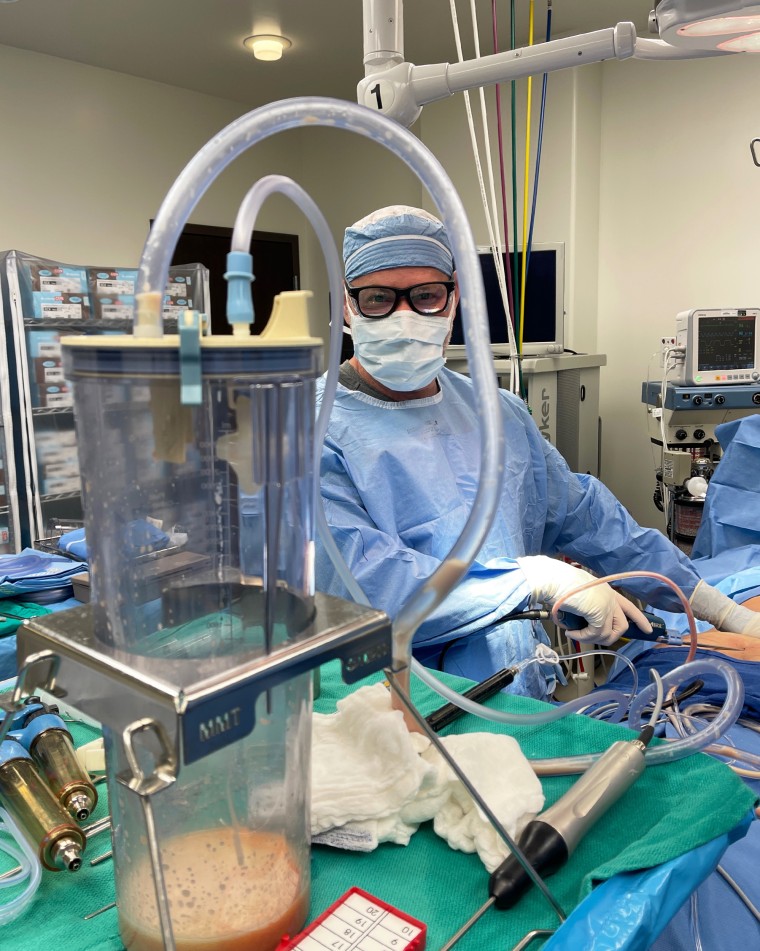Plastic Surgery Inland Empire: Trusted Specialists for Spectacular Cosmetic Outcomes
Plastic Surgery Inland Empire: Trusted Specialists for Spectacular Cosmetic Outcomes
Blog Article
Checking Out the Emotional and Social Variables That Drive People to Take Into Consideration Cosmetic Surgical Treatment as a way of Enhancement
The choice to seek plastic surgery typically extends past plain visual appeals, intertwining with social and mental characteristics that merit thorough assessment. Elements such as self-esteem, prevalent societal beauty standards, and the pervasive impact of social networks converge to form private inspirations for medical improvement. As these influences become increasingly noticeable, comprehending the underlying social and emotional contexts is necessary. What stays to be discovered is the extensive impact these variables have not only on individuality yet likewise on more comprehensive societal standards and worths surrounding appeal and acceptance.
The Role of Self-Esteem
Self-confidence considerably influences an individual's choice to go after plastic surgery. People with low self-worth often view themselves in an adverse light, leading to sensations of insufficiency concerning their physical look. This unfavorable self-perception can drive them to seek medical treatments as an approach of boosting their self-image. The wish for renovation in one's look is regularly connected to a belief that such modifications will elevate their overall self-worth and confidence.

Inevitably, the function of self-confidence in the decision-making process relating to cosmetic surgery highlights the complicated interplay in between body image, individual fulfillment, and mental health. Understanding this relationship is crucial for health care professionals to make sure that people are making informed decisions rooted in sensible assumptions and emotional well-being.
Social Appeal Specifications
Influenced by pervasive media representations and cultural stories, societal beauty requirements play an essential function in shaping people' assumptions of their very own bodies. These standards are often defined by an idyllic form of appeal that highlights traits such as slimness, proportion, and youthfulness. As these ideals are continued through numerous channels, including marketing, television, and film, people regularly internalize these messages, bring about dissatisfaction with their natural appearance.
The effects of these social norms prolong past aesthetic choices; they can affect self-esteem, psychological health, and social relationships. People who perceive themselves as dropping brief of these requirements may experience feelings of inadequacy, prompting a desire for plastic surgery as a way of attaining societal authorization. This search is frequently sustained by the belief that satisfying these ideals will certainly boost not only physical appearance yet likewise social standing and individual fulfillment.

Impact of Social Media
The effect of social appeal standards is additional magnified by the increase of social networks systems, where curated images and idealized depictions of elegance are common. Customers are regularly exposed to filtered and modified photos, which often show unattainable physical features. This direct exposure grows a society of contrast, leading individuals to assess their own appearance against these frequently impractical benchmarks.
Social media influencers and stars frequently promote cosmetic treatments, normalizing the notion that surgical enhancements are a sensible means for accomplishing social ideals (plastic surgery rancho cucamonga). The presence of these improvements can create an assumption that going through plastic surgery is a standard practice, thus affecting people to think about comparable treatments as a pathway to boosted self-worth and social approval
Additionally, the interactive nature of my latest blog post social networks permits instant responses with likes and remarks, further reinforcing the wish to satisfy preferred appeal criteria. Such communications can intensify sensations of inadequacy and drive people toward plastic surgery as a means of obtaining validation. Inevitably, social networks plays a crucial function fit assumptions of beauty, which significantly impacts the decision-making processes bordering plastic surgery.

Social Perspectives on Appearance
Throughout different cultures, perceptions of look are deeply rooted in historical, social, and financial contexts, shaping individuals' sights on appeal and worth. In numerous cultures, look acts as a significant pen of identification, influencing social status, expert chances, and personal connections. As an example, in some societies, light skin is usually related to riches and advantage, while others may glorify darker complexion as signs of toughness and authenticity.
Additionally, traditional appeal criteria are commonly bolstered through social stories, media representations, and family members influences, leading to varying ideals across different areas (plastic surgery rancho cucamonga). In Western societies, the emphasis on youth and fitness typically drives individuals toward cosmetic improvement, while discover this info here in certain Eastern societies, more refined changes straightened with standard looks might be favored
Globalization and the proliferation of digital media have better complicated these dynamics, developing a hybridization of beauty ideals that transcends geographical limits. As individuals progressively browse these cultural narratives, the pressure to satisfy certain appearance standards can lead to the need for plastic surgery, reflecting an intricate interaction of individual aspirations and cultural worths. Comprehending these social viewpoints is vital in dealing with the inspirations behind cosmetic surgical procedure considerations.
Mental Effects of Plastic Surgery
Many individuals seeking cosmetic surgery report experiencing profound psychological influences that can significantly modify their self-perception and psychological wellness - plastic surgery rancho cucamonga. The need for physical improvement usually stems from underlying concerns such as low self-esteem, body dysmorphic condition, or social stress regarding appeal criteria. For some, the immediate post-operative phase can bring about a momentary boost in confidence and contentment with their look, fostering a sense of empowerment
However, these positive feelings may not be enduring. Research suggests that while some individuals experience improved self-confidence, others may face heightened anxiety or clinical depression if their expectations are not met. This inconsistency can emerge from unrealistic ideals bolstered by media depiction and social narratives surrounding beauty.
Furthermore, the emotional implications of plastic surgery expand beyond the individual. Relationships with friends and family may be strained as social dynamics shift, bring about sensations of isolation or alienation. Inevitably, the emotional effects of plastic surgery are multifaceted and complex, needing mindful factor to consider by both possible people and healthcare providers to make sure enlightened decision-making and sensible assumptions.
Verdict
To conclude, the choice to pursue cosmetic surgical procedure is dramatically affected by a combination of self-confidence problems, societal appeal requirements, and social viewpoints on appearance. The pervasive reach of social media sites even more aggravates these pressures, advertising unrealistic ideals that individuals commonly strive to obtain. Comprehending these social and emotional aspects is important for resolving the motivations behind cosmetic surgical procedure, highlighting the demand for an extra nuanced conversation bordering appeal and self-acceptance in contemporary culture.
The decision to pursue cosmetic surgical treatment commonly expands past simple aesthetics, intertwining with Continued social and emotional dynamics that warrant detailed assessment. Ultimately, social media plays a crucial duty in forming understandings of beauty, which significantly impacts the decision-making procedures surrounding cosmetic surgery.
As individuals significantly browse these social narratives, the pressure to adhere to details look criteria can lead to the wish for cosmetic surgical treatment, reflecting a complex interplay of individual aspirations and cultural values.In verdict, the decision to go after cosmetic surgical treatment is considerably affected by a mix of self-confidence concerns, social elegance requirements, and social viewpoints on look. Comprehending these social and mental elements is necessary for attending to the motivations behind cosmetic surgery, highlighting the need for an extra nuanced discussion surrounding appeal and self-acceptance in modern society.
Report this page